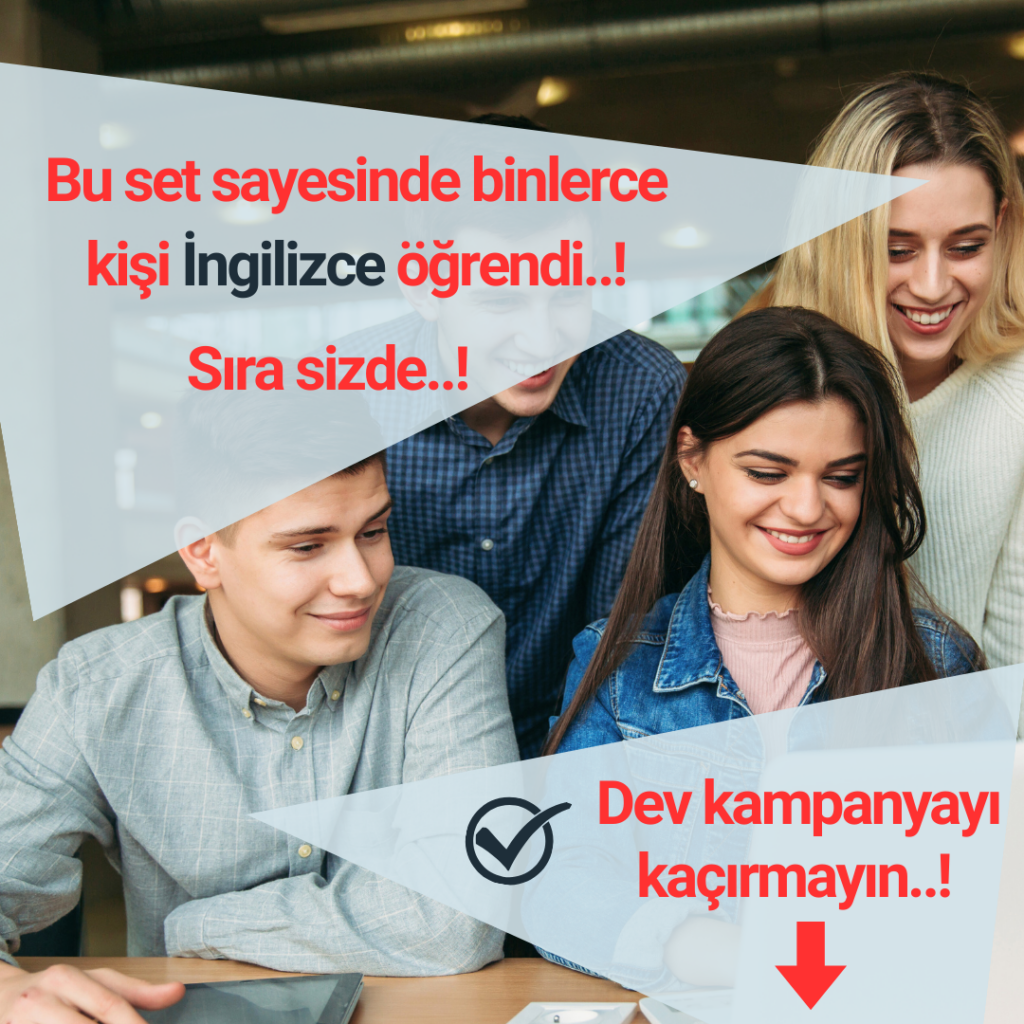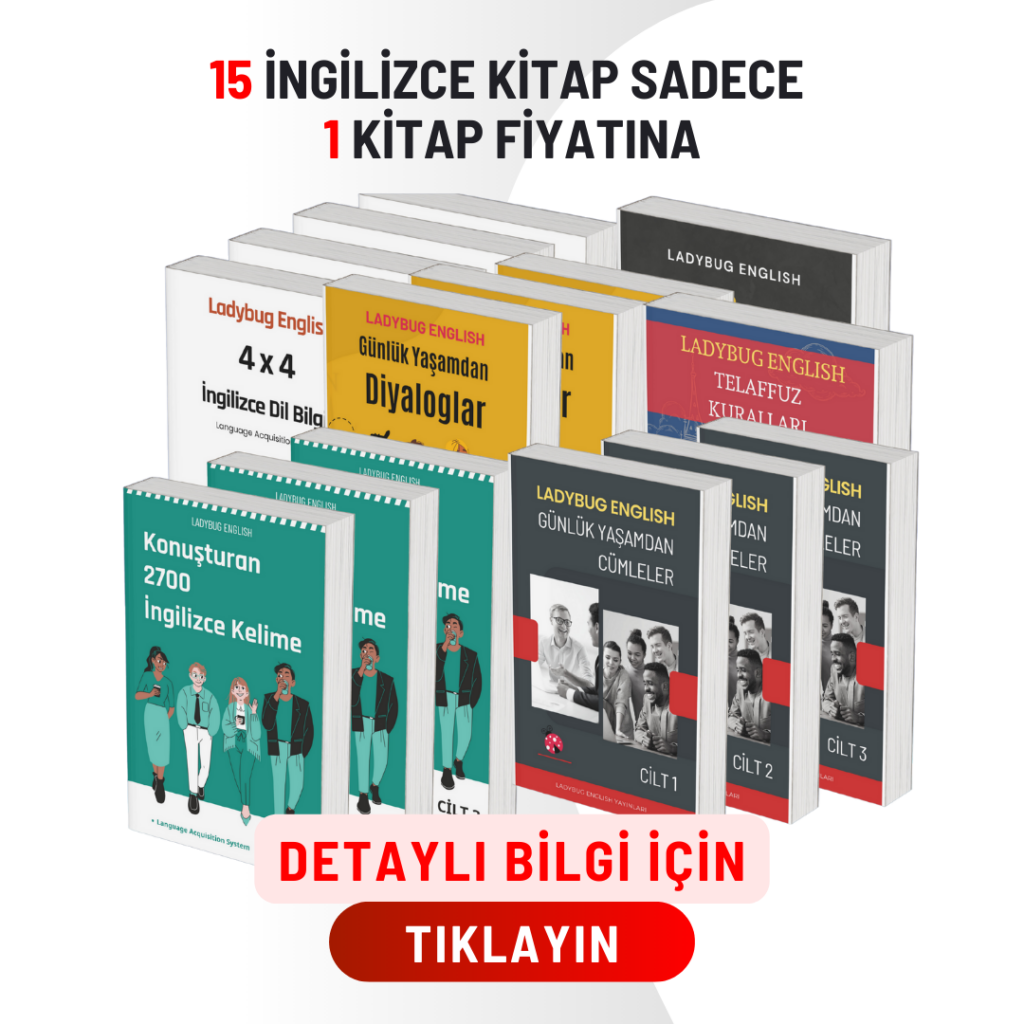Was ve were, İngilizce dilbilgisinde “to be” fiilinin geçmiş zaman (past simple tense) çekimlenmiş halleridir. Türkçede genellikle “idi”, “oldu”, veya bağlama göre “vardı” şeklinde çevrilebilir. Bu fiiller, geçmişte bir durumun, yerin veya bir özelliğin varlığını ifade etmek için kullanılır.
Kullanımı, cümlenin öznesine (subject) bağlıdır:
Was:
I, he, she, it özneleriyle kullanılır.
Tekil özne ve üçüncü tekil şahıslarla birlikte geçmiş bir durumu veya olayı ifade eder.
Were:
You, we, they özneleriyle kullanılır.
Çoğul özneler ve “sen/siz” öznesiyle birlikte geçmiş bir durumu veya olayı ifade eder.
Ayrıca was ve were, hem olumlu hem de olumsuz cümlelerde, soru cümlelerinde, hatta koşul ifadelerinde (if clauses) sıkça kullanılır.
Was Were Cümle Yapısı Nasıldır?
Was ve were kullanılarak yapılan cümleler, İngilizcede oldukça basit bir yapı izler. Bu fiiller, geçmişte bir durum, yer veya özellik belirtmek için kullanılır. İşte detaylı açıklama:
Olumlu Cümle Yapısı
Özne + was/were + yüklem/tamamlayıcı
Cümle, özneye uygun olarak was veya were ile başlar ve ardından bir tamamlayıcı gelir.
I was happy yesterday.
Dün mutluydum.
She was at the library.
O, kütüphanedeydi.
We were very tired after the trip.
Geziden sonra çok yorgunduk.
Olumsuz Cümle Yapısı
Özne + was/were + not + yüklem/tamamlayıcı
Not eklenerek cümle olumsuz hale getirilir. Was not = wasn’t, were not = weren’t şeklinde kısaltılabilir.
I wasn’t at school yesterday.
Dün okulda değildim.
They weren’t ready for the presentation.
Sunum için hazır değillerdi.
He wasn’t angry at me.
Bana kızgın değildi.
Soru Cümlesi Yapısı
Was/Were + özne + yüklem/tamamlayıcı
Cümle başına was veya were getirilir. Soru işareti ile bitirilir.
Was she at the meeting?
Toplantıda mıydı?
Were they late for the bus?
Otobüse geç mi kaldılar?
Was I wrong about the decision?
Karar konusunda haksız mıydım?
Kısa Cevaplar
Evet veya hayır şeklindeki kısa cevaplar genellikle şöyle yapılır:
Yes, özne + was/were.
No, özne + wasn’t/weren’t.
Was he tired?
Yes, he was. (Evet, yorgundu.)
No, he wasn’t. (Hayır, yorgun değildi.)
Were they at the party?
Yes, they were. (Evet, partideydiler.)
No, they weren’t. (Hayır, partide değillerdi.)
Koşul Cümleleri (If Clauses)
If + özne + was/were, şartın sonucu
Were, bazen tekil öznelerde de kullanılır ve bu durumda bir hayalî durumu ifade eder.
If I were you, I would apologize.
Eğer senin yerinde olsaydım, özür dilerdim.
If she was late, it wasn’t her fault.
Eğer geç kaldıysa, bu onun hatası değildi.

Was Were Cümlelerine Yer Veren Örnek Bir Metin
A Wonderful Summer in Italy
Last summer, I was in Italy with my family. The weather was beautiful, and the streets were full of tourists. Every morning, we were excited to explore new places. My brother was especially happy because he loves Italian food. The pizzas and pastas were delicious!
One day, we were at the Colosseum in Rome. It was huge and amazing! Many people were taking pictures, and some were listening to tour guides. My father was interested in the history, so he spent hours reading the information boards. Meanwhile, my mother and I were resting in the shade because it was very hot.
At the hotel, the staff were very kind and helpful. Our room was clean and comfortable. There was a small balcony where we could sit and watch the sunset. The evenings were peaceful, and we were very relaxed after a long day of sightseeing.
İtalya’da Harika Bir Yaz
Geçen yaz, ailemle birlikte İtalya’daydım. Hava çok güzeldi ve sokaklar turistlerle doluydu. Her sabah, yeni yerler keşfetmek için heyecanlıydık. Özellikle kardeşim mutluydu çünkü İtalyan yemeklerini çok seviyor. Pizzalar ve makarnalar çok lezzetliydi!
Bir gün, Roma’daki Kolezyum’daydık. Burası çok büyük ve etkileyiciydi! Birçok insan fotoğraf çekiyordu ve bazıları rehberleri dinliyordu. Babam tarihe çok meraklı olduğu için saatlerce bilgi panolarını okudu. Bu sırada, annem ve ben gölgede dinleniyorduk çünkü hava çok sıcaktı.
Otelde, çalışanlar çok nazik ve yardımseverdi. Odamız temiz ve rahattı. Küçük bir balkonumuz vardı, burada oturup gün batımını izleyebiliyorduk. Akşamlar huzurluydu ve uzun bir gezi gününden sonra çok rahatlamıştık.
Was Were Yapıların Yer Veren Örnek Bir Diyalog
A Conversation About Yesterday
James: Hi Barbara! Where were you yesterday? I was looking for you at the library.
Barbara: Oh, hi James! I was at home. I wasn’t feeling well, so I decided to rest.
James: Oh no! Were you sick?
Barbara: Yes, I had a headache all day. But now I’m fine. Were you studying at the library?
James: Yes, I was. The library was so quiet yesterday. It was a perfect place to study.
Barbara: That’s good. Were there many people?
James: No, there weren’t. Only a few students were there. How about you? What were you doing while I was studying?
Barbara: I was just reading a book in bed. It was relaxing.
Dün Hakkında Bir Konuşma
James: Merhaba Barbara! Dün neredeydin? Seni kütüphanede arıyordum.
Barbara: Ah, merhaba James! Evdeydim. Kendimi pek iyi hissetmiyordum, bu yüzden dinlenmeye karar verdim.
James: Ah hayır! Hasta mıydın?
Barbara: Evet, bütün gün başım ağrıyordu. Ama şimdi iyiyim. Sen kütüphanede ders mi çalışıyordun?
James: Evet, öyleydim. Kütüphane dün çok sessizdi. Çalışmak için mükemmel bir yerdi.
Barbara: Bu iyi. Çok insan var mıydı?
James: Hayır, yoktu. Sadece birkaç öğrenci vardı. Peki ya sen? Ben ders çalışırken ne yapıyordun?
Barbara: Yatakta kitap okuyordum. Rahatlatıcıydı.
Was Were Yapıları ile Alakalı Egzersiz Çalışması
Aşağıdaki sorularda boşlukları uygun şekilde was veya were ile doldurun.
I ______ at the park yesterday.
They ______ not at school last Monday.
______ she happy with the results?
We ______ in London last summer.
The weather ______ really cold yesterday.
______ you at the meeting this morning?
He ______ the best player on the team last year.
There ______ many books on the table.
I ______ tired after the long journey.
The children ______ excited about the trip.
Cevap Anahtarı
was
I was at the park yesterday.
were
They were not at school last Monday.
Was
Was she happy with the results?
were
We were in London last summer.
was
The weather was really cold yesterday.
Were
Were you at the meeting this morning?
was
He was the best player on the team last year.
were
There were many books on the table.
was
I was tired after the long journey.
were
The children were excited about the trip.

